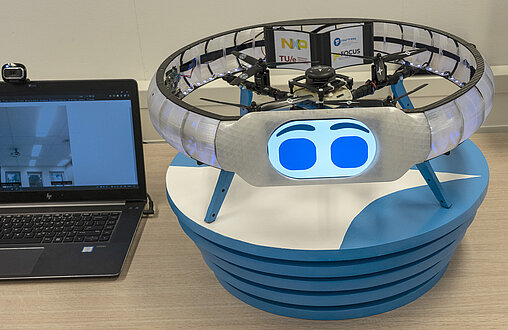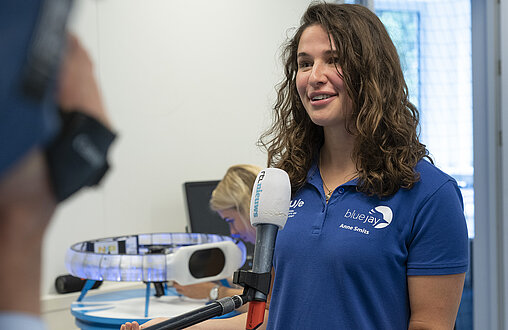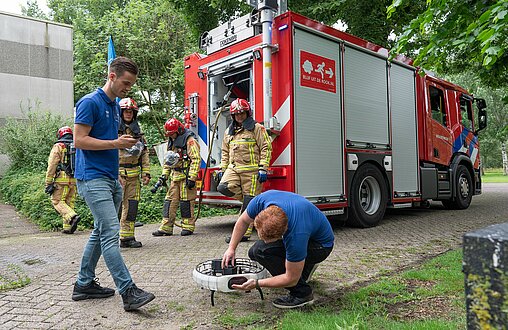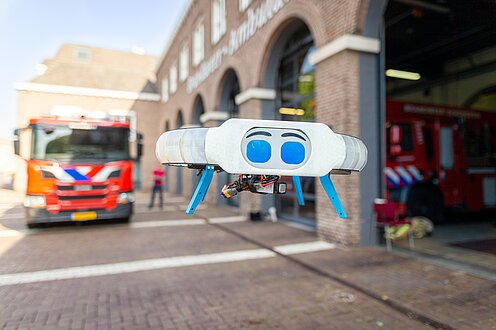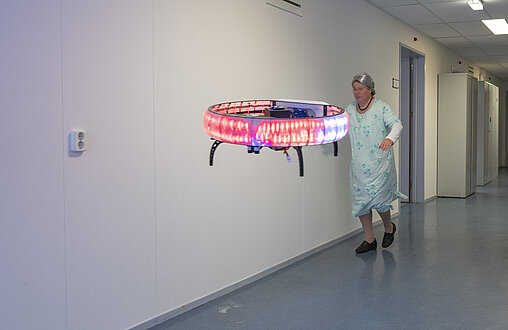From a drone that delivers beers to a drone that can help firefighters with the evacuation in nursing homes
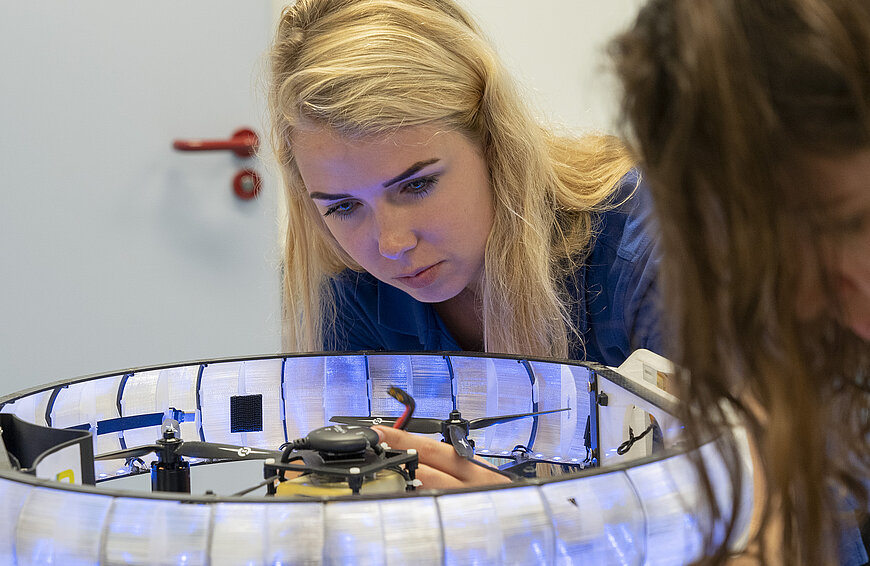
From last years to the present
In the previous years, the vision of Blue Jay has changed a lot. From a drone that delivers beers, a rescue drone for people drowning in a swimming pool to a drone that can help firefighters with the evacuation in nursing homes. The last function was proposed last year by the fire department of Brabant Zuid Oost. This year, they will continue with the evacuation drone of last year. They see a lot of prospect in this application of an indoor drone. The fire department sees the drone as a useful help in the evacuation of nursing homes and the nursing homes also see this as a good development to increase the safety in the case of a fire. This year, they got in contact with the nursing home ‘Joriszorg’ and we can perform tests to see what exactly the impact of having a Blue Jay drone in a nursing home is.


Vision for the use of the drone
In the future, they imagine that multiple Blue Jay drones will be present inside the apartment buildings of nursing homes. The residents that are living in these nursing homes are less self-reliant and when a fire alarm goes off, they can’t/won’t go to the fire exits themselves. They therefore need the help of a Blue Jay drone to guide them to safety. When a fire starts in a certain apartment in the nursing home, say apartment 3B, the closest Blue Jay drone is alarmed and it knows in which apartment the fire is. This drone will then go to this apartment, open the door and when inside, it will look if there is someone inside. If there is, it will guide the person outside and to the fire exit. In the case that the person is hurt in a way in which he/she can’t go outside, the Blue Jay drone will send this information through and tries to estimate in how much danger the person is. If the person is not in danger anymore, the Blue Jay drone proceeds to scan the other rooms of the department for people and will guide them to safety. Then it goes to the process of scanning the room for people and guiding them to safety again. The other drones in the building will also start doing this. In this way the evacuation of the whole building already starts before the fire fighters arrive. The fire fighters can also get real time information from the Blue Jay drones through the Blue Jay app. In this way, they already know what the situation is in the nursing home upon arrival. When the fire fighters have arrived (which takes approximately 10-15 minutes), they can signal the drones that their help is not needed anymore and take control of the situation. When a fire is starting, it takes less than 3 minutes before the situation becomes nonsurvivable. The first minutes after the fire starts are therefore very important. As already mentioned, it takes the fire department 10-15 minutes to arrive at the scene. In addition, there is only one ER (‘emergency response’, Dutch = BHV’er) present at night. This is not enough to start the evacuation of the building. The use of the Blue Jay drone could therefore save the life of the residents in nursing homes.
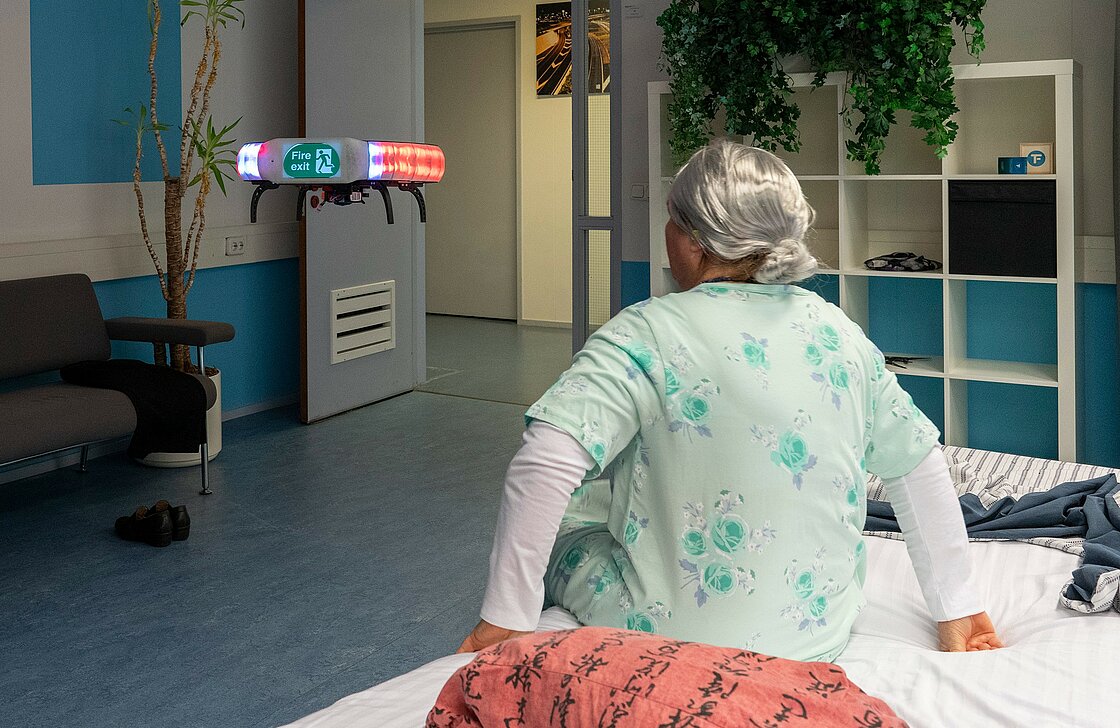
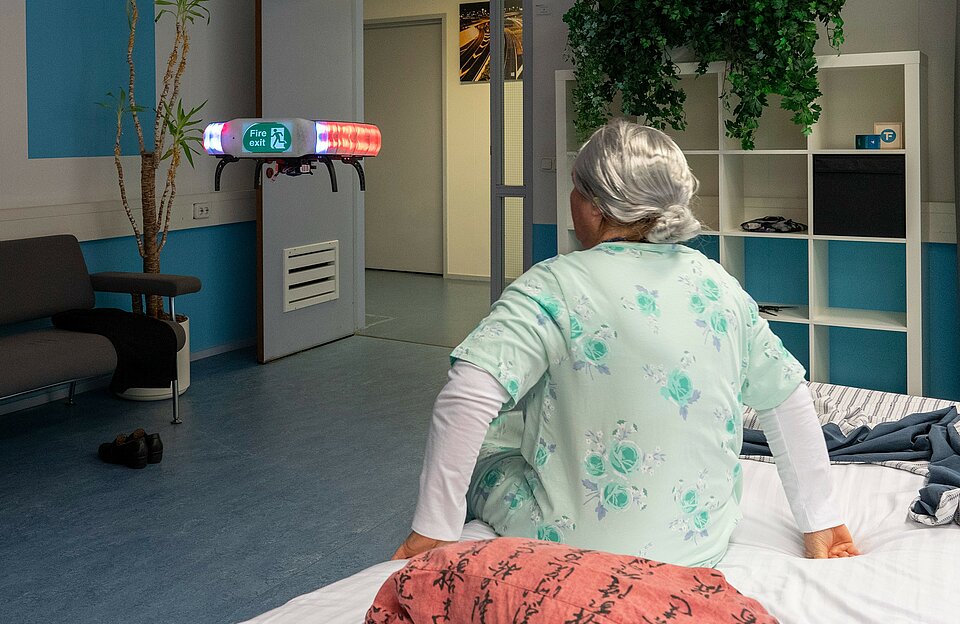
The focus of this year
This year, the focus is on making the drone autonomous. This is because the Blue Jay drone should be autonomous in order to fulfill the role of replacing the needed ER. In addition, their software/AI team is the largest sub-team this year, so they should be able to set large steps to make the drone fully autonomous. They will also develop the drone in closer contact to the end users, namely the nursing home and its residents. They will get feedback from the employees and the residents of the nursing home. Based on this, they will make changes to the drone. In this way, the drone will get closer to be implemented in actual nursing homes. The hardware team of this year will focus on increasing the efficiency of the drone and on making the drone safer. The first is needed to increase the time that the drone can fly. Right now the absolute maximum is 15 minutes. In order to guarantee that the drone can stay in use until the fire fighters arrive, this should be increased. The second is kind of a giveaway. As the drone will be in contact with people, it should be safe to use. This is very important before it can be implemented in a nursing home.
